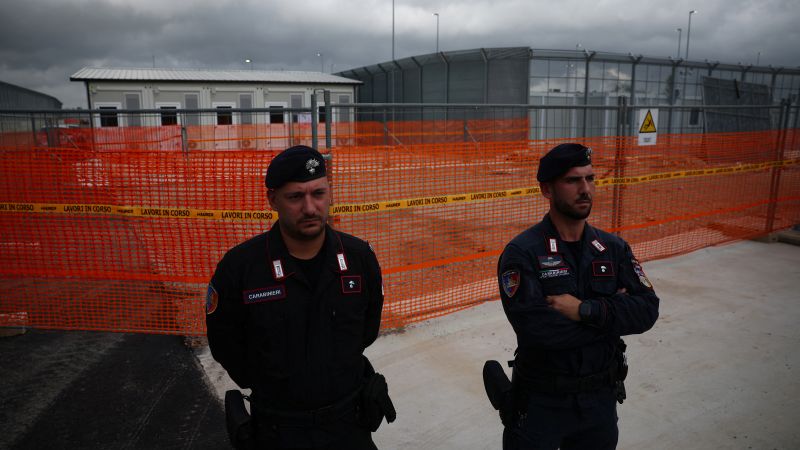
European nations aiming to replicate Italy’s contentious policy of sending some asylum seekers to offshore centers have encountered a significant obstacle. On Friday, the European Court of Justice (ECJ) ruled that while Italy can continue using its facilities in the Albanian cities of Shengjin and Gjader, the eligibility of individuals sent there must undergo stricter scrutiny to prevent the return of asylum seekers to perilous conditions in their home countries.
The court’s decision highlighted that a nation can only be designated as “safe” after undergoing “effective judicial review.” Additionally, the ruling stated that a country must prove its safety for all citizens, including vulnerable or marginalized groups. This landmark judgment is poised to impact new EU asylum regulations, set to take effect in June 2024, which aim to empower member states to establish their own lists of “safe” countries in order to streamline and outsource the asylum process.
The EU’s preliminary list includes countries such as Bangladesh, Colombia, Egypt, India, Kosovo, Morocco, and Tunisia. However, human rights advocates have raised concerns over the safety of these nations for all inhabitants. In a statement from Amnesty International in July, the organization criticized the EU’s criteria for deeming certain countries safe, noting that the acknowledgment of up to 20% of applicants from these nations receiving international protection indicates that these places are indeed not universally safe.
The ECJ ruling stemmed from the cases of two Bangladeshi asylum seekers who were detained in Albania. They contended that returning to Bangladesh posed significant risks to their safety. As various European countries evaluate the establishment of similar deportation schemes based on the Italian-Albanian model, the implications of this ruling may reshape their plans.
Italy’s offshore partnership, which involves significant investments in detention centers and “return hubs” in a non-EU country, has been branded by some as a potential framework for addressing migration challenges. Yet, a recent study by the University of Bari revealed that the Italian initiative has already cost the country over €74.2 million (approximately $86 million) and described it as “the most costly, inhumane, and useless instrument in the history of Italian migration policies.”
Despite these findings, Ursula von der Leyen, President of the European Commission, and Charles Michel, former President of the European Council, praised Italy’s 2023 agreement on migration. In May 2024, the EU launched a set of reforms aimed at optimizing its approach to migration and asylum, particularly regarding migrants from designated “safe” countries. The reforms, characterized as “fair but firm,” are intended to alleviate the strain on nations that have historically received the highest number of asylum seekers among the EU’s 27 member states.
The ECJ ruling raises questions about the future of detention hubs in Europe. Italian Prime Minister Giorgia Meloni criticized the court’s decision, describing it as short-sighted and detrimental to efforts aimed at controlling illegal immigration and safeguarding national borders. She stated, “This development should concern everyone, including the political forces rejoicing today over the ruling, because it further reduces the already limited scope for governments and parliaments to regulate and administer migration.”
As the situation unfolds, nearly a dozen individuals from countries deemed safe, including Egypt and Bangladesh, remain in limbo within Italy’s detention centers in Albania, their futures uncertain. The ongoing debate surrounding the treatment of asylum seekers and the definition of safety remains at the forefront of European migration policy discussions.







